
The process of sowing seed has always been an exciting and nurturing experience. With each little capsule planted comes the promise of longer daylight hours, warmth and delicious home grown produce in the growing season to come. Seed by seed, packet by packet we are sowing hope as much as anything else and we all need this more than ever right now. For many on a fixed budget, for the well-being gain of freshly picked produce, so much fresher and full of flavour than anything supermarket-bought,and for the love of growing.
Being able to switch off from things beyond our control and tune into the growing of fruit and vegetables and the joy to be found therein, really offers so much.
MAKE EVERY SEED YOU PLANT, MATTER
Common advice dictates that seedlings should be thinned out and only the stronger-looking specimens used for growing on, with the smaller plants rejected and disposed off. Yet you can attempt to grow on every single seedling. That's want I do and have done for many years because I have found that most will flourish into productive plants given the chance.
Actually, your stragglers may just be seed that was planted a little lower into the soil than the others and therefore took longer to burst into life. It doesn't mean that it's a weak or defunct seed, far from it. Sure, it might take a bit longer to get growing, but this could be your lower- maintenance version of succession sowing all in one.
Try and make best use of every single seed and seedling and you are reducing waste in the process.
Germination tips for success
Although there are a multitude of different factors at play which contribute to the success of germination here are some all-round guidelines to help you on your way.
Think before you sow
This story is from the {{IssueName}} edition of {{MagazineName}}.
Start your 7-day Magzter GOLD free trial to access thousands of curated premium stories, and 9,000+ magazines and newspapers.
Already a subscriber ? Sign In
This story is from the {{IssueName}} edition of {{MagazineName}}.
Start your 7-day Magzter GOLD free trial to access thousands of curated premium stories, and 9,000+ magazines and newspapers.
Already a subscriber? Sign In
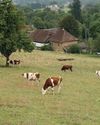
How to Buy a Smallholding in France- Long-time smallholder Lorraine Turnbull looks at the practicalities of moving to rural France
Aspiring smallholders are continually thwarted by the prices of smallholdings and property with land located within the UK. Even the humblest croft in Scotland comes with a substantial price tag and conditions which would make even an adventurous wannabee consider carefully. But all is not lost. For those willing to take the adventure of a lifetime, there is always Europe, and one of the most popular places is France.

Meet the Bournemouth goats and their supporters
These capricious animals are hard workers preserving the natural habitat
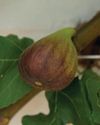
Still warm enough to sit outside with a Pizza
Henrietta Balcon uses fresh figs to create an unusual dish at Harvest time
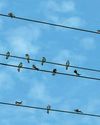
Goodbye to the birds of spring and summer
If you look and listen you might be able to see them preparing to leave says The RSPB
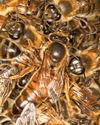
Get ready for the colder weather in the warmth of late summer
Claire Waring advises on doing the best to make sure your colonies survive until next spring
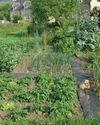
Preparing the Veg Patch for Winter
Lee Senior says, a well-run plot can excitingly continue to produce good quality, tasty, fresh food for much of winter
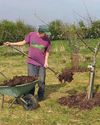
Time to prepare to plant your orchard
Wade Muggleton, smallholder and author of The Orchard Book, shares his practical experience so you can create your own fruit collection
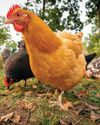
Choosing feed for the autumn
As autumn approaches, Joanna Palmer, nutritionist at the Smallholder Range, offers advice on choosing the right feed to support your adult birds through their annual moult and ensure your young birds grow and finish well at this time of the year.
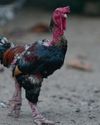
Vet advice from an experienced poultry vet
Reflecting on how much the humble hen has helped people world wide plus advice on stopping the scourge of red mite

Give your hens some support
Paul Donovan looks at the right and wrong ways of handling birds